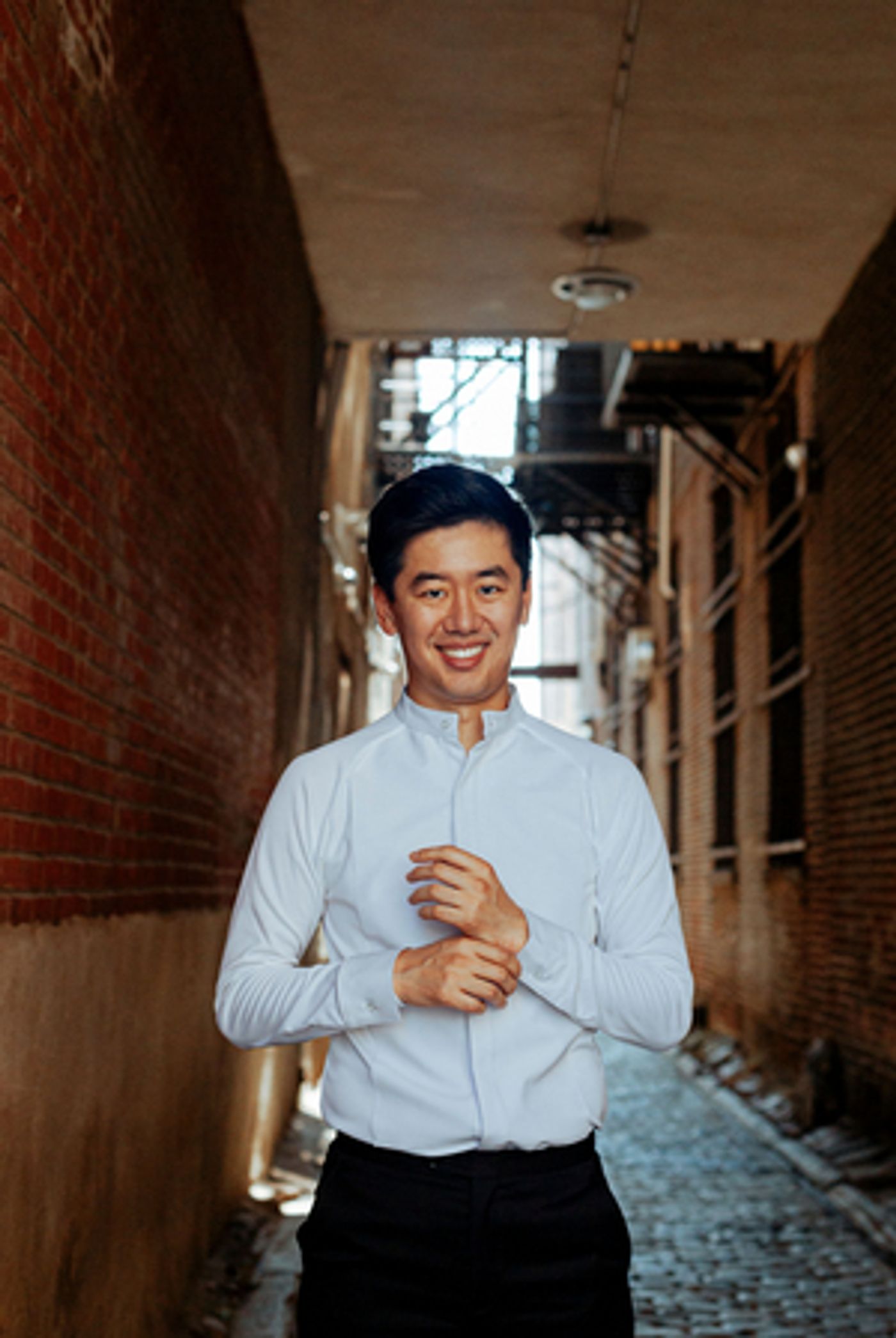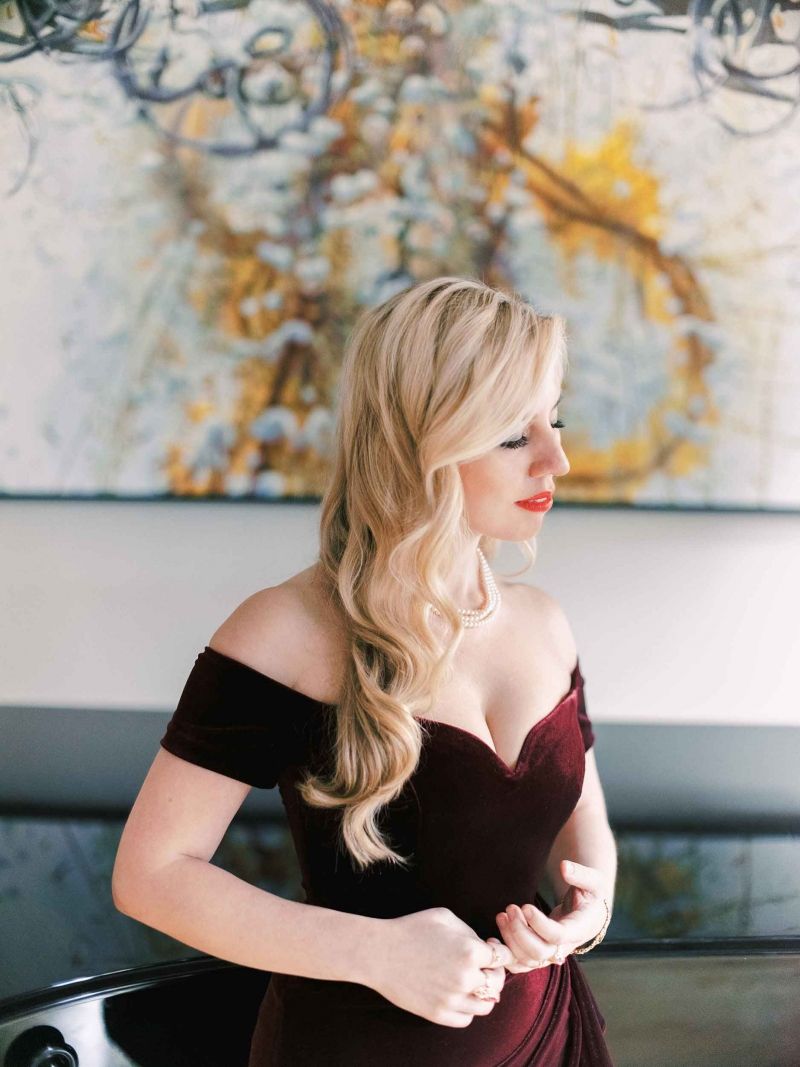Review: Review: RI PHIL, KENSHO WATANABE bring infectious energy to ROMANTIC RACHMANINOFF at VETS Auditorium
A pair of stimulating, rarely heard pieces — not to mention a pair of young, energetic guest artists — made for a refreshing, unexpected and exhilarating evening at the VETS.

A second and a half before Kensho Watanabe raised his baton to conduct the Rhode Island Philharmonic Orchestra in a performance of Sergei Rachmaninoff's Symphony No. 2, the inevitable happened: Someone sneezed. Loudly.
Most conductors would have reacted to such an interjection with slight annoyance, or at the very least, feigned ignorance. But Watanabe isn't most conductors.
Before earning bachelor's and master's degrees in music, the 29-year-old got his B.S. in molecular, cellular and developmental biology from Yale University. Once he decided music, not medicine, was his calling, he refused to choose one side of the stage over another, simultaneously serving as a conducting fellow under mentor Yannick Nézet-Séguin and subbing as a violinist in the Philadelphia Orchestra.
And on November 13, 2021, in a crowded VETS Auditorium in Providence, he cast typical protocol aside...and turned around to flash a sympathetic smile at the audience member who had sneezed.
"Someone had to be the first person to do that," Watanabe quipped, sending a ripple of laughter across the hall.
It was just one in a series of refreshing, unexpected moments that evening - moments that may not have happened at all, had the thunderstorms and tornado warnings not abated.
On the program, aside from the Rachmaninoff, was a pair of stimulating, rarely heard pieces by Maurice Ravel and Florence Price - a welcome break from the Phil's usual hit parade. And in the audience were more patrons than the orchestra had entertained in person since February 2020, according to Executive Director David Beauchesne, giving the evening an especially festive air.
First up was "Dances in the Canebrakes, " written by Price not long before her death in 1953. The first African American woman to have her work performed by a major orchestra, Price wrote much of her music about the Black American experience, and this piece was no exception: Its title references the wild stands of cane that enslaved Black people cleared to make room for cotton fields in the Deep South, taking breaks for meals and festivities as allowed. Musically, it's a rollicking good time: Price clearly drew on childhood memories here, pulling inspiration from turn-of-the-century ragtime music and ballroom waltzes, as well as from her jazz and musical theater contemporaries. Watanabe seemed to dance right along with the music, his feet sometimes moving across the podium as rapidly and gracefully as his baton through the air. And clearly, his energy was infectious: the orchestra gave their all to Price's three swingy, animated movements.

And they were just getting started: If "Canebrakes" was lively, Ravel's Piano Concerto in G Major was downright intoxicating. Ravel demands the impossible of musicians in this piece, having written lightning-quick tempi, complex meters and dissonances that require perfect tone to pull off. Pianist Natasha Paremski, a force of energy, passion and speed, gamely lived up to the challenge, as did the rest of the orchestra under Watanabe's baton.
Both Price and Ravel knew George Gershwin personally, a fact made evident by both of these bluesy, cosmopolitan pieces. It was fascinating to conclude the night with something completely different: A piece written nearly 20 years before the highly influential "Rhapsody in Blue," by a man who only ever admired Gershwin from afar.
Rachmaninoff's second symphony, now a universally loved classic, was once a close-kept secret. After the disastrous, widely panned premiere of his first symphony, the composer feared sharing another one with the world. Thank goodness it soon saw the light of day: Reaching every movement's big, luscious apex is no less satisfying than watching the happy resolution of a will-they-won't-they TV romance. I have to give a special shoutout to the orchestra's brass and woodwind sections, whose endurance and beautiful solo work, respectively, were awe-inspiring.
In all, the evening was a triumph - especially for Watanabe, who had never conducted Rachmaninoff's second before and received a long standing ovation. He noted from the stage that his first appearance at the VETS was in the midst of the pandemic, when the number of audience members was no larger than the number of musicians on stage. While that first performance was a bright light in the midst of darkness, he seemed to suggest, this night - with its thundering applause, its three encores, its cacophony and sparkle - was the stuff of dreams.
Reader Reviews

Videos

